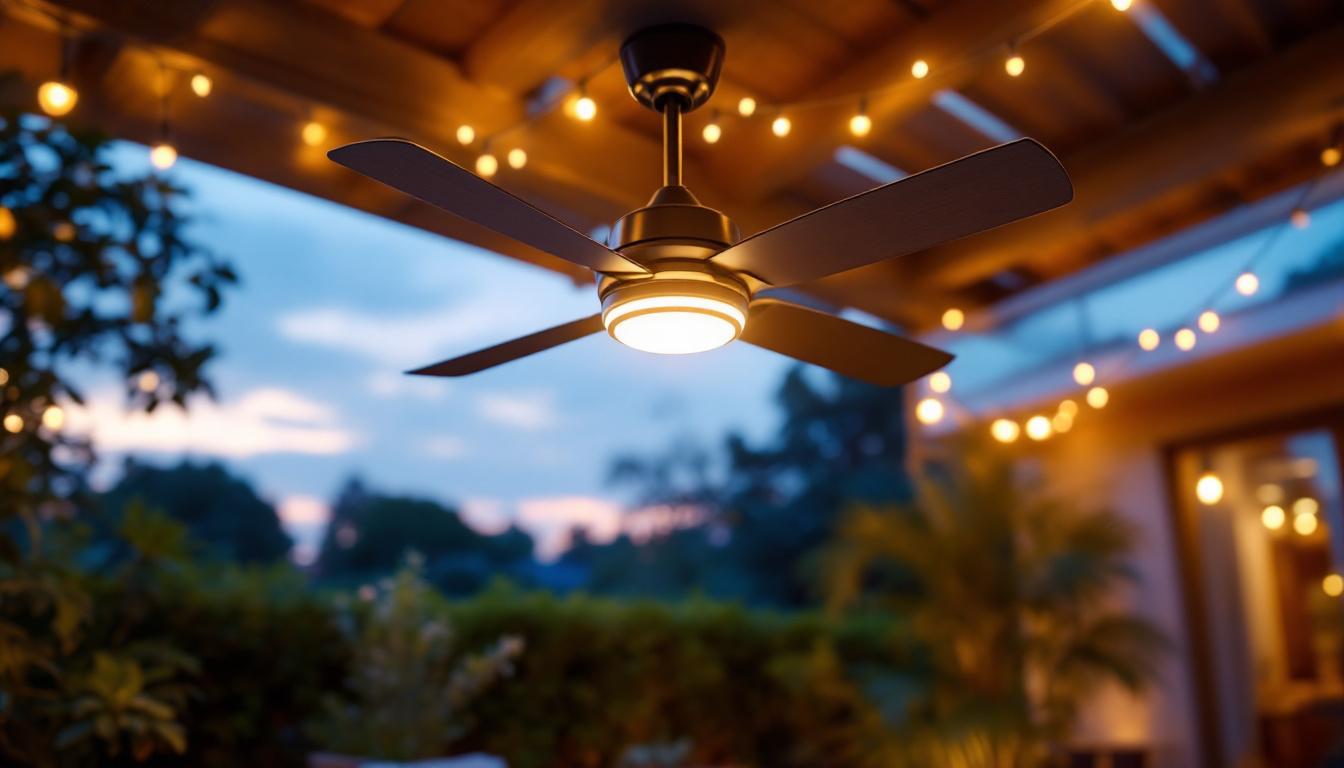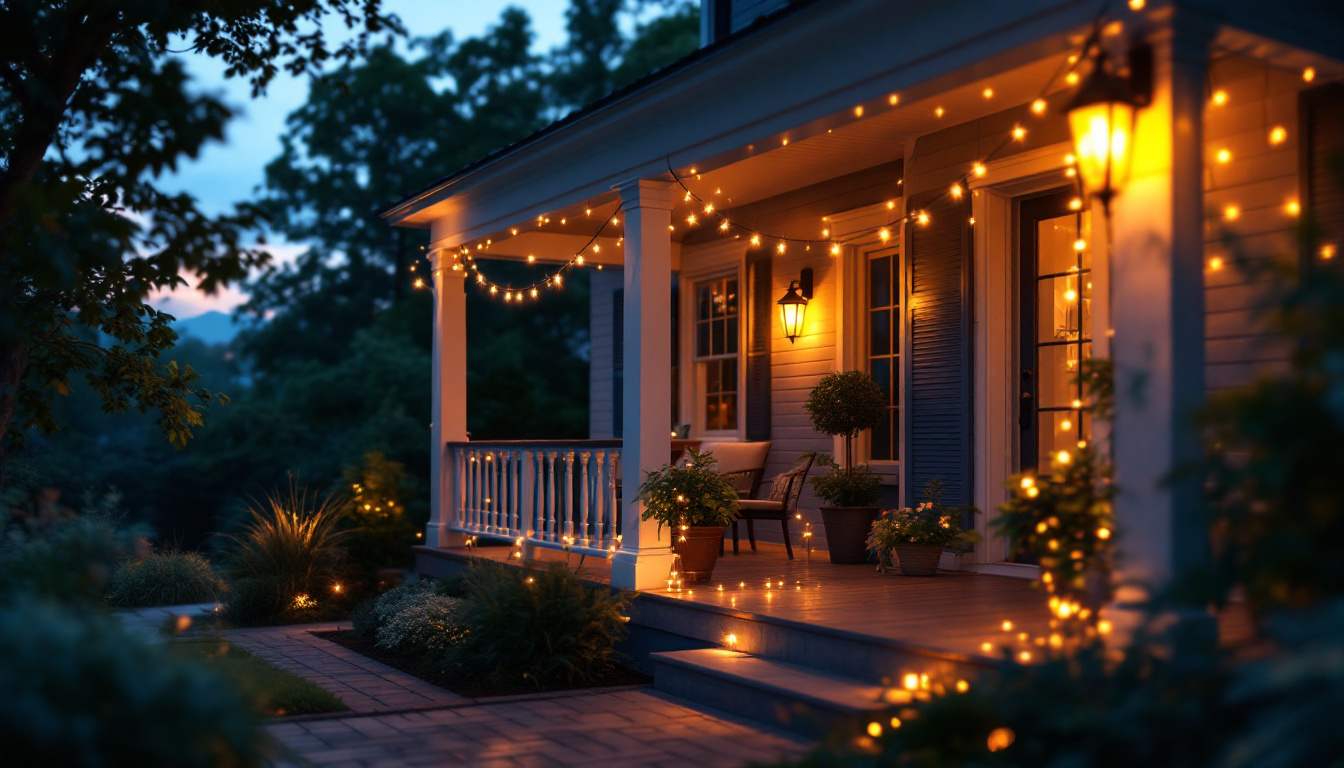
In the realm of outdoor lighting, solar lights have emerged as a popular choice for gardens, patios, and pathways. Their eco-friendly nature, ease of installation, and cost-effectiveness make them an attractive option for lighting contractors looking to enhance outdoor spaces. This article delves into the benefits of solar lights, the considerations for installation, and tips for selecting the right products for various garden settings.
Solar lights operate by harnessing energy from the sun, converting it into electricity through photovoltaic cells. This energy is stored in batteries and used to power LED lights after sunset. The simplicity of this technology is one of its main advantages, allowing for a wide range of applications in garden lighting. Moreover, advancements in solar technology have led to more efficient solar panels and batteries, enabling longer-lasting illumination and improved performance even in less sunny conditions. This means that solar lights can be a reliable option for various climates, making them increasingly popular among homeowners and businesses alike.
Solar lights consist of several key components: solar panels, batteries, LED bulbs, and sensors. The solar panels capture sunlight during the day, while the batteries store this energy for nighttime use. LED bulbs provide illumination, and sensors can automatically turn the lights on and off based on ambient light levels. Understanding these components helps contractors explain the benefits and functionality of solar lights to clients. Additionally, many modern solar lights now come equipped with smart technology, allowing users to control their lighting remotely via smartphone apps. This feature not only enhances convenience but also allows for customizable lighting schedules and energy management, making solar lighting systems even more appealing.
One of the primary advantages of solar garden lights is their energy efficiency. By relying on solar power, these lights reduce electricity costs and promote sustainability. Additionally, the absence of wiring simplifies installation, making it easier for contractors to set up lighting systems without extensive groundwork. This can lead to quicker project completion and increased client satisfaction. Furthermore, solar garden lights often come in a variety of designs and styles, allowing homeowners to choose options that complement their outdoor aesthetics. From decorative lanterns to sleek modern fixtures, the versatility in design can enhance the overall ambiance of outdoor spaces, making them more inviting and functional.
Solar lights contribute to reducing carbon footprints, making them an environmentally friendly choice. By utilizing renewable energy, they help decrease reliance on fossil fuels. For contractors, promoting the eco-friendly aspect of solar lighting can appeal to environmentally conscious clients, enhancing the overall value of their services. In addition to reducing greenhouse gas emissions, solar lights also minimize light pollution, as many models are designed to focus light downward rather than dispersing it into the sky. This thoughtful design not only preserves the natural night sky but also protects nocturnal wildlife, making solar lighting a responsible choice for those looking to balance functionality with ecological stewardship.
While solar lights offer many advantages, their installation requires careful consideration. Factors such as location, sunlight exposure, and the specific needs of the garden must be evaluated to ensure optimal performance.
Before installation, a thorough site assessment is essential. Contractors should evaluate the garden’s layout, identifying areas that receive adequate sunlight throughout the day. Shadows cast by trees, buildings, or other structures can significantly impact the performance of solar lights. A well-planned site assessment can prevent future issues and ensure that the lights function effectively.
Not all solar lights are created equal. Contractors should consider the brightness, battery capacity, and durability of the products they select. Brightness is typically measured in lumens; higher lumens indicate brighter lights. Battery capacity affects how long the lights will operate after sunset, while durability ensures the lights can withstand outdoor conditions. Selecting the right combination of these factors is crucial for meeting client expectations.
Installation of solar lights is generally straightforward, but attention to detail is important. Lights should be placed at appropriate heights to maximize illumination without causing glare. Additionally, ensuring that solar panels are unobstructed by foliage or other objects will enhance their efficiency. Contractors should also consider the aesthetic aspect of installation, ensuring that lights complement the garden’s design.
There is a wide variety of solar lights available, each designed for specific applications within garden settings. Understanding the different types can help contractors recommend the best options to their clients.
Pathway lights are designed to illuminate walkways and garden paths, providing safety and enhancing visibility. These lights typically feature a low profile and can be spaced evenly along a path for consistent illumination. Contractors should consider the spacing and height of these lights to create an inviting atmosphere while ensuring safety.
For highlighting specific features in a garden, such as sculptures, trees, or architectural elements, spotlights and floodlights are ideal. These lights can be directed to focus on particular areas, creating dramatic effects and enhancing the overall landscape design. When recommending these lights, contractors should discuss the angle and intensity of the illumination to achieve the desired effect.
String lights have gained popularity for creating a festive and cozy ambiance in outdoor spaces. They can be draped across trees, pergolas, or fences, adding charm to any garden setting. Contractors should consider the length of the string lights and the spacing of bulbs to ensure an even distribution of light.
While solar lights require minimal maintenance, periodic checks can ensure longevity and optimal performance. Educating clients on basic maintenance can enhance their satisfaction and prolong the life of the installation.
Solar panels should be kept clean to maximize their efficiency. Dust, dirt, and debris can accumulate on the surface, blocking sunlight and reducing the amount of energy collected. Contractors can advise clients to periodically wipe the panels with a soft cloth and mild soap to maintain their effectiveness.
Over time, the batteries in solar lights may lose their ability to hold a charge. Educating clients about the signs of battery deterioration, such as dimming lights or shorter operating times, can help them take proactive measures. Contractors should recommend suitable replacement batteries and explain the process for replacing them.
If solar lights are not functioning as expected, contractors can guide clients through troubleshooting steps. Checking for obstructions on the solar panel, ensuring the lights are turned on, and verifying battery connections are essential first steps. If problems persist, it may be necessary to consult the manufacturer’s guidelines or replace the unit.
Effective communication with clients is vital for successful solar light installations. Educating clients about the benefits, features, and maintenance of solar lights can foster trust and satisfaction.
Contractors should take the time to explain the advantages of solar lights to clients. Discussing energy savings, environmental benefits, and the ease of installation can help clients make informed decisions. Providing visual aids or demonstrations can further enhance understanding and interest.
Setting realistic expectations regarding the performance of solar lights is crucial. Factors such as geographic location, seasonal changes, and weather conditions can affect their efficiency. By discussing these variables upfront, contractors can prevent misunderstandings and ensure clients are satisfied with their investment.
Offering follow-up services can enhance client relationships and encourage repeat business. Contractors can schedule periodic check-ins to assess the performance of the solar lights and address any concerns. This proactive approach not only builds trust but also positions the contractor as a knowledgeable expert in solar lighting solutions.
The solar lighting industry is continually evolving, with new technologies and designs emerging to enhance performance and aesthetics. Staying informed about these trends can give contractors a competitive edge.
Smart solar lights are becoming increasingly popular, integrating with home automation systems and allowing for remote control via smartphones. These lights can be programmed to adjust brightness based on time of day or motion detection, providing both convenience and energy efficiency. Contractors should familiarize themselves with these advancements to offer cutting-edge solutions to clients.
Advancements in battery technology are leading to longer-lasting and more efficient solar lights. Lithium-ion batteries, for example, offer improved performance compared to traditional lead-acid batteries. Understanding these developments can help contractors recommend the best products available in the market.
As aesthetics play a significant role in outdoor lighting, design innovations are crucial. Manufacturers are increasingly focusing on creating stylish and versatile solar lights that blend seamlessly with various garden styles. Contractors should keep an eye on emerging designs to provide clients with options that enhance their outdoor spaces.
Solar lights offer a practical and sustainable solution for garden lighting, making them an excellent choice for lighting contractors. By understanding the technology, installation considerations, and product options, contractors can provide valuable services to their clients. As the industry continues to evolve, staying informed about trends and advancements will ensure that contractors remain competitive and capable of meeting diverse client needs.
Incorporating solar lights into garden designs not only enhances aesthetics but also promotes energy efficiency and environmental responsibility. By simplifying the process of selecting and installing solar lighting, contractors can elevate their offerings and contribute to creating beautiful, illuminated outdoor spaces.
Ready to elevate your garden lighting projects with the most efficient and sustainable solar lights on the market? At LumenWholesale, we provide lighting contractors like you with spec-grade lighting solutions that blend quality with affordability. Our extensive selection of solar lights is designed to meet the highest industry standards, ensuring you deliver reliable and high-performance lighting to every garden. Take advantage of our unbeatable wholesale prices, free shipping, and the convenience of bulk buying. Transform your outdoor lighting projects and give your clients the best value by choosing Wholesale Lighting at the Best Value with LumenWholesale.

Discover essential strategies for lighting contractors to prevent common pitfalls with ballast electric systems.

Discover why staying updated on light levels is crucial for every lighting contractor.

Discover proven methods for outdoor ceiling fan with lighting installation, boosting efficiency and customer satisfaction.

Discover how choosing the right porch lights can boost your business and help you secure more lighting contracts.